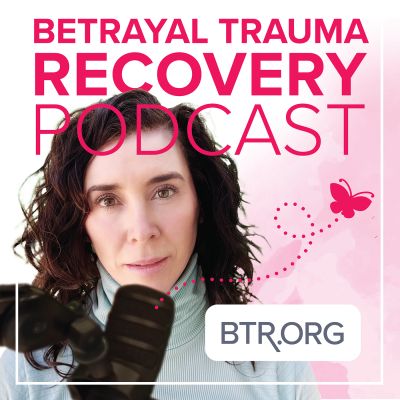btr.org - btr.org has daily, online Group and Individual Sessions for victims of emotional & psychological abuse and sexual coercion. For women experiencing pain, chaos, and isolation due to their husband’s lying, gaslighting, manipulation, porn use, cheating, infidelity, emotional abuse, and narcissistic abuse. Labeling a victim as "codependent" is a form of victim blaming. Pornography addiction / sex addiction are a domestic abuse issue. Narcissistic abuse is not a communication issue. We help women who are married, separated, or divorced heal through establishing emotional safety. If you suspect your husband is a narcissist, a pornography addict, or emotionally abusive, this podcast is for you. Every woman on our team has experienced betrayal trauma first hand. To learn more about Betrayal Trauma Recovery, visit BTR.ORG
https://www.btr.org/podcast/
How To Deal With Narcissism
Those of us who have dealt with NPD (Narcissistic Personality Disorder) may chuckle when we read the phrase that "for a narcissist, every day is their birthday."
While not every abusive person and/or sex addict has diagnosable NPD, many, if not all, have narcissistic personality traits. While these traits make the beginning of the relationship incredible and traumatically bonding to the partner of the abuser, these same traits make the relationship unbearable and excruciating usually very quickly into the relationship.
Often, these relationships follow a pattern. Many women are told that the relationship is following the sexual addiction cycle, however, it is usually actually following the cycle of abuse, or the Cluster-B Personality Disorder cycle of:
* Idealization (you are the most perfect person in the world, I will do whatever it takes to be with you, I will change whatever I need to change to be with you, I will call you all day and text you every second of the day)
* Devaluation (why are you so clingy? why are you eating again? I just need some space. Sometimes I just miss my ex-wife... she was more fun than you. I never said I was going to change - you made that up. You are crazy.)
* Discard
* The discard happens when your partner relapses into sexually perverse behaviors;
* Physically abandons you and/or your children;
* Abuses you (though abuse happens in all three stages - at the 'discard' stage, the abuse is usually more intense and pronounced)
While this cycle is happening, you are also having to deal with someone who is obsessed with himself; daydreams often of wealth and power; cannot self-reflect; uses others as tools to get what he wants (including his own children); turns others against you to make himself look/seem better; chooses to have zero empathy for you and your feelings.
So how in the world do you cope with this?
In one word, boundaries.
In Doctor Ramani Durvasula's book, Should I Stay or Should I Go, she paints a very realistic picture of marriage and partnership with a true narcissist: should you choose to stay, your relationship will need strong boundaries. You will need to have a strong support system to take your good news and your bad news to because your partner will never be able to provide the love, empathy, excitement, and support you deserve. You will need physical space to yourself because your partner will never respect your right to privacy and space. You will need to emotionally detach because your partner will never make relational decisions; he will always make self-centered decisions.
Pretty bleak.
If you decide to leave the marriage, you will still need plenty of support and self-care. The abuse will not suddenly stop, especially if you have children with the abuser.
Now, if your partner is not a full-blown diagnosed narcissist, but does display traits, you will cope in a similar way: set strong, high boundaries. As he responds with, (in the words of Coach Joi) "believable behaviors over time"
